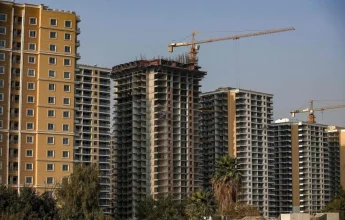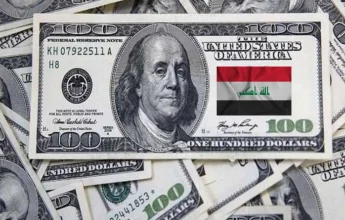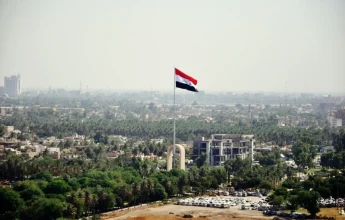Real estate boom in Anbar shines light on Iraq’s housing crisis

The rise in property prices applies to both commercial and residential units, with rents also increasing in recent years. While the trend is part of a wider housing crisis in Iraq, provincial and federal authorities are only now beginning to acknowledge the extent of the problem. As elsewhere in the country, the impact of rising property prices and rents are most keenly felt by Anbar’s working and middle classes.
Abed Alwan Al-Dulaimi, a resident of Fallujah—one of Anbar’s largest cities—spoke to Amwaj.media about the housing crisis. Dulaimi has long dreamed of becoming a homeowner. But his rent of 350,000 IQD (269 USD) consumes most of the monthly salary of 678,000 IQD (522 USD) he receives from the local government department where he works. After paying rent, Dulaimi struggles to put food on the table for his family of three. Speaking to Amwaj.media, he blamed the government for not directly tackling the property crisis in Anbar, saying that surging prices set by estate agents and brokers are not controlled
The political connections of some estate agents can create additional issues, Dulaimi explained, charging that “if a person is affiliated with an influential [political] party in the governorate, he gets a discount on real estate.” According to Dulaimi, the “discount” can sometimes amount to up to 70% of market prices. Those who do not have such connections either have to pay dearly for their homes, or end up excluded from home ownership.
Reasons behind the price rise
Economic researcher Omar Al-Halbousi, an Anbar native, told Amwaj.media that real estate prices in the governorate began to increase gradually from 2012. Much of the rise is due to what he called “feudal lords” in the property sector; landlords and owners who allegedly manipulate the market to launder money. Government officials have acknowledged that money laundering in the housing sector is a national issue.
Economist and former government advisor Salam Smeasim told Amwaj.media that wealthy and well-connected people are dominating the Iraqi housing market. She alleged that “many of these wealthy individuals are weary of their money exiting Iraq because of [western] sanctions,” concluding that “they have therefore turned to investing locally, inside Iraq.”
Other dynamics seen elsewhere in Iraq’s troubled housing market also impact Anbar. Academic Ahmad Al-Rawi told Amwaj.media, “The rise in real estate prices in Baghdad in the past two years…prompted many real estate buyers to seek property in nearby cities.” This has led to price rises in eastern Anbari cities close to the capital, including Fallujah and governorate capital Ramadi. Rawi also noted that property prices have been pushed up by returning locals who were displaced during the conflict with the Islamic State group (IS). Beyond Iraq’s rapid overall population growth, the return of internally displaced persons has added to the increase in Anbar’s population.
Economist Smeasim further asserted that bank loans and government support for both the purchase and construction of homes have conversely contributed to the rise in real estate prices. The government has rolled out a series of new loans ranging from 50M IQD (38,462 USD) to 150M IQD (115,385 USD), offered via public banks and the Iraqi Housing Fund. The loans have been in high demand, particularly among government employees. But rather than push down prices as intended, a resulting property boom has further increased demand for property.
Government-led solutions
Economic researcher Halbousi told Amwaj.media that the Ramadi Municipality in recent years “launched a wide-scale campaign to raise awareness of the manipulation of real estate prices.” The intervention was the municipality’s first attempt to both monitor and curb rising real estate prices. According to Halbousi, the effort was coordinated between the provincial government and local municipalities—and effective in limiting price manipulation.
In another effort to tackle high property prices, local administrations in Anbar have issued investment licenses to boost the construction of housing compounds, including outside Fallujah. Some observers believe similar steps on a national level could help resolve the housing crisis and push down skyrocketing prices. But this view is not universal.
Dr. Mazhar Muhammad Salih, an economic advisor to the government, told Amwaj.media that investment in housing compounds has in fact been a part of the problem rather than a solution, due largely to the locations of such projects. The construction of housing compounds in populated regions with high demand instead of in less populated areas has caused the prices of residential units in the compounds to soar.
To solve the housing crisis, Salih explained that the authorities have distributed “plots of land to the poor” through the online platform Dari—meaning “my home” in Arabic—with buyers paying a small, symbolic fee. The initiative to expand the housing stock was launched in 2021 by the Mustafa Kadhimi administration (2020-22), with priority given to landless citizens as well as vulnerable groups such as widows, and victims of war and terrorism. Kadhimi last year announced that three million Iraqis had applied to join the scheme and that more than half a million plots had been allocated across Iraq.
The government has said that it will provide infrastructure and services for the new plots, including power and water. The latter is crucial as Salih warned that rapid population growth in areas with “existing infrastructure” has left electricity and water systems “incapable of meeting the living requirements of residents.




